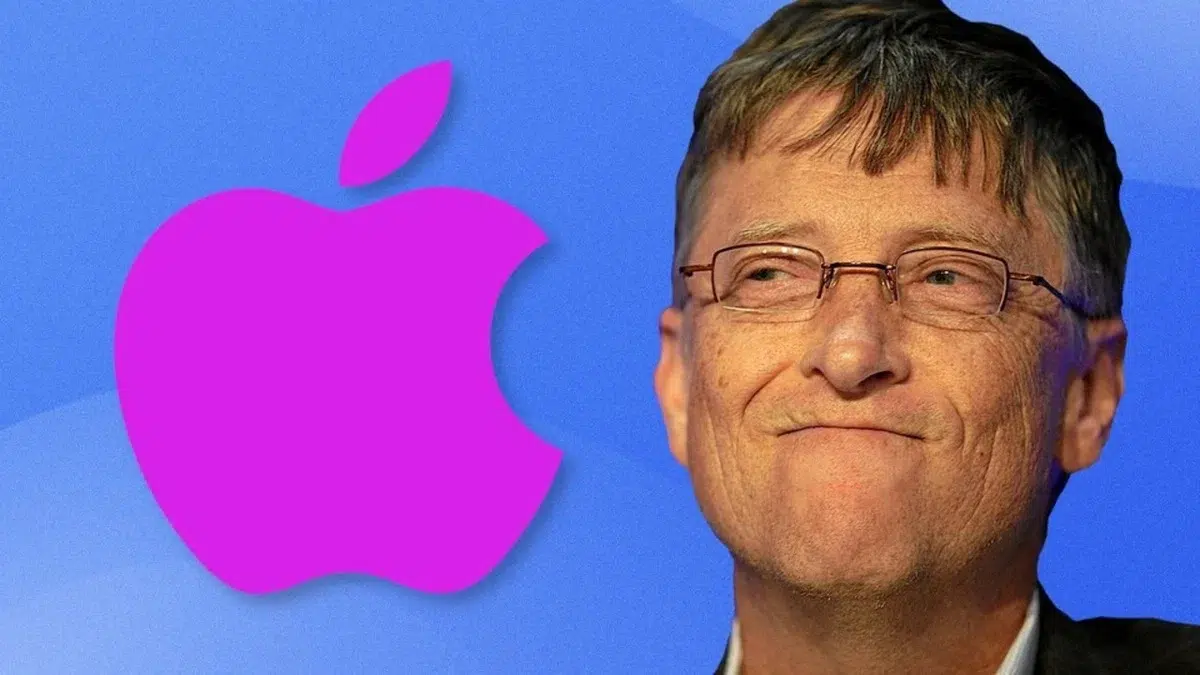Two decades ago, the Microsoft co-founder and billionaire foresaw the downfall of the iPod. Nowadays, this seems obvious, but back then, the MP3 player was breaking sales records and nobody anticipated its downfall. Today, we revisit an old interview with one of the biggest figures in tech history. It’s intriguing to discover what tech giants of that era could predict.
In May 2005, Bill Gates, the co-founder of Microsoft, spoke to the Frankfurter Allgemeine Zeitung (FAZ). At that moment, Apple’s iPod was reigning supreme, selling millions of units annually and revolutionizing how people consumed music.
In that discussion, Gates made a daring forecast: he declared that the iPod’s triumph wouldn’t last, as smartphones were on the horizon, offering users far greater capabilities. Nearly 20 years later, it’s evident that Gates’ prediction was accurate.
The iPod was eventually overtaken by the iPhone and other smartphones, devices that have become essential for most people.
Two Key Predictions from Bill Gates That Accurately Anticipated Tech’s Future in 2005
What makes this even more fascinating is that Gates also anticipated some fundamental features of what smartphones would eventually embody. Here’s what he shared in 2005. For context, the first iPhone hadn’t yet been launched; it would come two years later on June 29, 2007.
Specifically, Gates said: “I believe this area (the mobile phone market) holds absolute strategic significance, and I’ll explain why: the challenges in the mobile communications market align perfectly with where we (Microsoft) see our strengths.
Increasingly, more functions will be merged into a single device, and that will require software solutions.”
Unfortunately for Microsoft, it was primarily Google and Apple who delivered most of the smartphone software, through Android and iOS respectively.
Windows Phone didn’t achieve major success, but Gates understood the need to enter this sector swiftly, even before the general public could imagine having miniature computers in the palm of their hands. At that time, smartphones were still nascent, and the tech giants already recognized their impending global impact.
He continued, “I don’t believe the iPod’s success is sustainable, no matter how competent Apple is. We can draw parallels with computers: Apple was once incredibly dominant with its Macintosh and graphical interface—a bit like the iPod now—but eventually lost ground. Consumers demand more possibilities, and those will be delivered, because this field is bursting with innovation.”
Again, this is a stroke of bad luck for Microsoft, as Apple managed to stay at the forefront of innovation and was even the company that ultimately discontinued the iPod by going all-in on the iPhone.
Nonetheless, even if Bill Gates didn’t translate these insights into massive financial gains because others were reaching the same conclusions, he was undeniably right. Consumers sought increasing functionality, and the iPod was inevitably going to be replaced by a more versatile device. Apple’s clever move was launching the App Store, which made the potential uses nearly limitless.
AI: The Coming Revolution Predicted by All Tech Giants… But Who Will Prevail?
We wanted to share this old interview because it highlights how tech giants are always a step ahead in spotting broad trends. If AI is the buzzword everywhere today, prepare for your life to be transformed by it within the next couple of years.
But one question remains: which company will win the AI race? Will it be Windows with Copilot? OpenAI with ChatGPT? Apple, which is expected to enhance Siri soon? Google with Gemini? Elon Musk with Grok? META (WhatsApp, Facebook, Instagram) with Llama and Meta AI? Or perhaps a lesser-known but formidable contender like Mistral?
There are many players in the field, and this marks a historic moment for technology. Each contender presents compelling strengths. Stay tuned closely.
